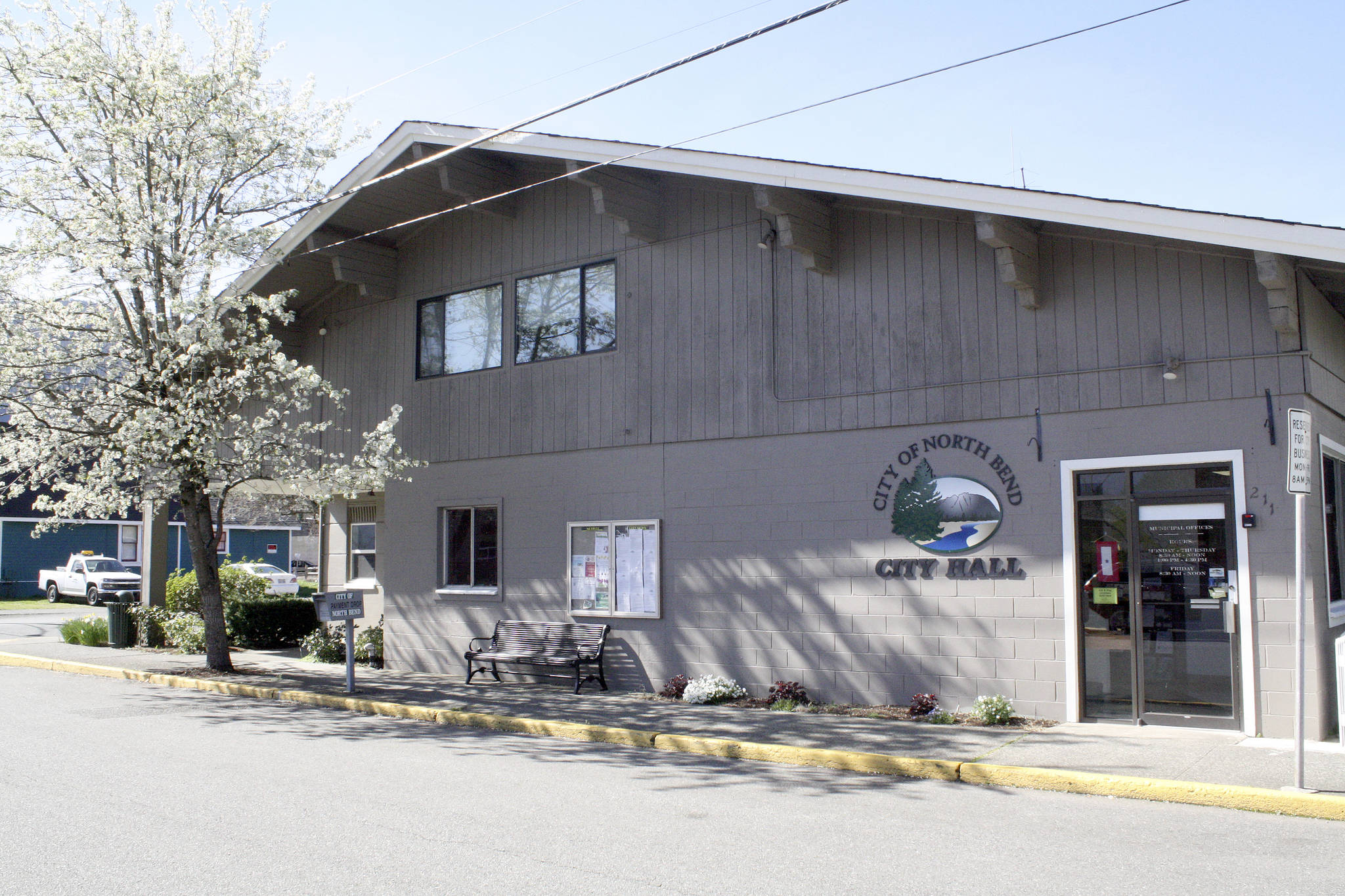The North Bend City Council passed an ordinance at their June 5 meeting to increase the stormwater capital facilities charge to help catch additional revenue during a busy development season.
The ordinance increases the one-time capital facilities charge, which developers must pay when constructing a new building, from $870 per equivalent service unit (ESU) to $2,526 per ESU. It was also amended by the council to direct staff to bring projects directly to them to discuss possible reductions or waiving of fees to entice businesses to develop in North Bend.
The ordinance was brought forth to help the city capture more utility revenue to fund utility improvement projects. With developers coming into the city, the ordinance would help growth pay for growth, City Manager Londi Lindell said.
The amendment was made after comments from several council members that North Bend is not an attractive place to do business due to increasing fees and expenses businesses must take on. The council wanted to ensure that the city would be able to improve their chances at bringing new businesses into the city.
Before the amendment was made, council member Martin Volken said he was stunned at that increase in price for the capital facilities charge and that the city would be creating adverse effects for business development if there weren’t a few exclusions.
“I wish the whole thing was a little bit more nuanced, we are creating yet again another adverse effect for business development and I don’t see certain exclusions,” Volken said. “…We are living in one of the most attractive places in western Washington in a thriving economy and if we can’t attract business right now, when are we ever going to be able to?”
Lindell said that Volken was right, but that incentives and waived fees would be more beneficial to have in other areas such as frontage improvement impacts, rather than utilities. The city has been collecting data to find out why business owners and commercial development have not been coming to North Bend.
“We think we are going to have to look at incentives,” she said. “That probably is going to be looking at some type of offset on some of these impact fees because simply the cost of doing frontage improvement impacts is making folks walk away from development.”
She said that those kind of incentives or fee changes would need to be done in a separate ordinance where the council states a governmental purpose for wanting to stimulate economic and business development.
Council member Jonathan Rosen did not feel that this was the right time to increase the fee, stating that businesses already have to deal with existing expenses in other areas that this increase would only exacerbate that problem and make North Bend even more unattractive.
“We need to sympathize, if we rely on commercial development for 70 percent of our tax base, we need to be considerate of what their expenses are in opening businesses, starting businesses and ultimately generating tax revenue for us,” he said.
David Miller, director of Community and Economic Development, suggested that staff bring individual commercial development projects to the council as businesses consider North Bend as a location. That way the council would be able to work out different incentives to promote the economic development in the city.
“If you did pass this, but you did either as a part this or in a separate motion, say that it is the intent of the entire council that we bring every commercial project to you to consider all fees,” he said. “And really the biggest ones are phasing and frontage improvements, those eclipse these by far … If you miss the wave of development that’s happening right now, you are going to miss the potential to financially deal with some major issues that we deal with.”
Council member Jeanne Petterson made the motion to approve the ordinance, which also directs staff to bring interested commercial development back to the council. The ordinance passed in a 6-1 vote with Rosen voting against.
Lindell said that city staff is also working to come back to the council with more efforts to emphasize attracting business to the city.


